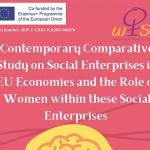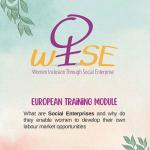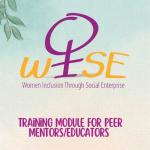European Union Programmes
The Life Long Learning Programme of the European Union supports learning opportunities from childhood to old age, at every stage of life.
It had a budget of € 7,000 million for 2007-2013, and it is the successor to Socrates, Leonardo da Vinci and eLearning.
Through this program grants were awarded for projects and activities that foster interchange, promote bilateral and multilateral partnerships, encouraging mobility of people and promotion of quality education and training systems in Europe.
The program is built on four pillars, or sub-programs:
Comenius Program for students, teachers, schools and related institutions / organizations (pre-school and school education up to the level at the end of upper secondary education)
Erasmus Program for students, researchers, teachers, universities and related institutions / organizations (higher education, including trans-national student placements in enterprises)
Leonardo da Vinci Program for apprentices, workers, employees and related institutions / organizations (education and training)
Grundtvig Program for adults, teachers and institutions / organizations active in related adult education.
More information can be found on the websites of the European Union at: http://eacea.ec.europa.eu/llp/index_en.php
A database of completed European projects can be found at: http://ec.europa.eu/dgs/education_culture/eve/
With a total budget of 14.7 billion euros over a period of seven years (2014-2020), Erasmus + aims to contribute to skills development and employability (employability) by providing opportunities for education, training and youth activities or sports. This budget is 40% higher than the previous level of expenditure in the period 2007-2013 and reflects the importance the EU attaches to these areas and commitment to invest in them.
Erasmus + offers an approach …
Strategic …
Organizations applying for funding and partners in a project Erasmus + have the opportunity to plan the activities of the project so as to develop the organization’s strategy on medium and long term through developing skills both for their members and for the beneficiaries they work with.
Integrated …
Lifelong learning requires a person to have different experiences. These life experiences are not the preserve of one sector (be it for school, university, employment, social activities or personal). Thus, to meet better the needs of final beneficiaries (categories of persons concerned), it is necessary that organizations involved in any learning or education to address this process “embedded” in a complementary manner and through cooperation with partners from other sectors.
… With a focus on impact
The impact is an integral part in any strategic process and the projects Erasmus + target to develop activities that generate a bigger impact
– to final beneficiaries through professional and personal development,
– for organizations by developing organizational capacity and
– in the community by responding better to the needs identified.
… More flexible and simple
On the one hand, Erasmus + proposes three funding lines (compared with 60 in the previous period). Thus it is easier for beneficiaries to understand how they can access funding opportunities (see section dedicated), especially if you are interested in more areas.
On the other hand they use in most cases, lump sums and unit costs, making it easier for beneficiaries to be able to focus on the actual implementation of project activities.
ERASMUS + Subprograms
Mobility Projects
Institutional projects are those that realize activities involving partners in several countries (transnational). The Program of a mobility project is different from one area to another and, according to this it may include training, placements, teaching, internships to study or volunteering, youth exchanges, job-shadowing type activities. More information on specific activities available in sections dedicated to each sector.
Strategic partnerships
Projects that create”bridges” linking partners in several countries to increase international cooperation by developing new products and innovative educational quality. Given that mobility projects where the emphasis is linked to the development of individuals (either beneficiaries, or staff of organizations involved), strategic partnerships complement them naturally focusing mainly on organizational development.
More information is to be found at the sections of strategic partnership projects dedicated to each sector: adult education, school education, higher education, vocational training (VET) and youth.
Funding opportunities in Key action 3 – Structured Dialogue
These projects promote structured dialogue as a tool used by young people to make their voice heard on how youth policies at European level should be developed and implemented through interaction with policy makers (local, regional, national, European).
Centralized actions
Outside the “decentralized “projects funded by the National Agency of Romania there are a number of funding opportunities (“centralized”projects) which can be accessed directly from the Education, Audiovisual and Culture in Brussels.
For details please access the site of the NATIONAL AGENCY FOR COMMUNITY PROGRAMMES in EDUCATION and VOCATIONAL TRAINING:







